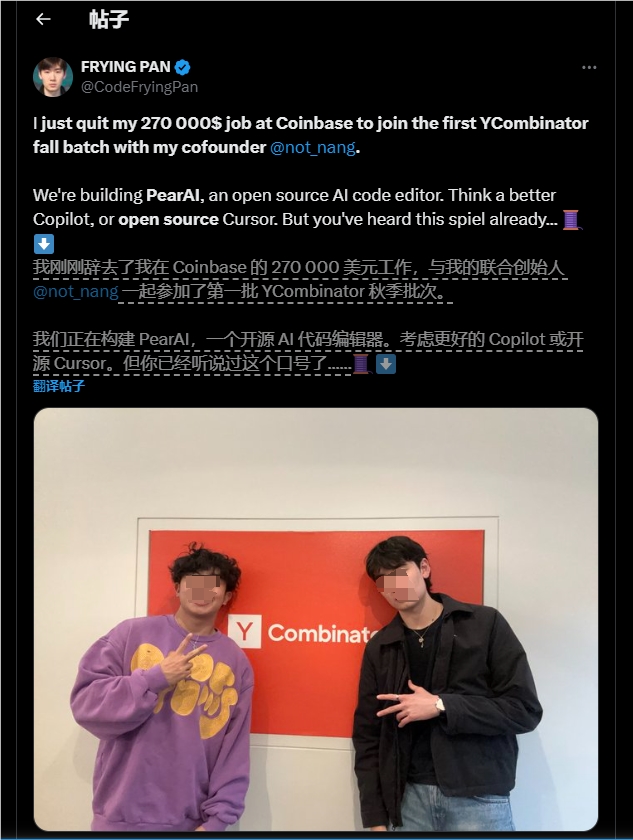Recently, a Y Combinator (YC) backed startup named PearAI made waves on social media with the launch of its first product – an AI coding editor, sparking widespread controversy.
Duke Pan, the founder of PearAI, admitted that the product was essentially a clone of another AI editor, Continue, which itself is a project based on the Apache open-source license. PearAI attempted to build upon this foundation with a proprietary "Pear Enterprise License," even claiming that this license was generated through ChatGPT.

In the open-source community, altering licenses is a significant issue, as it involves legal matters and, more importantly, goes against the original spirit of open-source, affecting the community's ethos of sharing and contributing. Facing intense public scrutiny, Duke Pan later apologized, stating that PearAI had re-released the project under the same Apache open-source license as Continue.
On Sunday, PearAI's launch thread on social media drew thousands of comments, with some offering congratulations and others harshly criticizing the licensing issues and PearAI's lack of originality, merely being a renamed replica rather than a true "fork." Platform X also posted a community note in the comments, pointing out that PearAI was a fork of Continue, using its code and simply replacing "Continue" with "PearAI" to mislead the public into thinking it was an independently developed product.
In response to this controversy, the Continue team issued a subtle statement, emphasizing that open-source is a movement based on trust and respect for contributions, licenses, and intellectual property. YC's CEO, Garry Tan, also weighed in, defending PearAI and arguing that the beauty of open-source lies in its openness. Critics, however, pointed out that PearAI's founder had just resigned from a high-paying position at Coinbase, yet the project proposed was far from original. Additionally, YC had previously supported two other AI coding editors – Void and Melty – raising questions about why PearAI was chosen for the incubator. Some commentators questioned YC's selection, suggesting that it reflects issues in YC's review process and due diligence on projects.
YC plans to increase the number of startup batches from two to four within the year, yet this expansion has done little to quell external concerns.
Key Points:
🌟 PearAI is a new startup from Y Combinator, but its product has been accused of being a simple clone of another open-source project.
⚠️ PearAI initially used a proprietary closed-source license, later switching back to the Apache open-source license under public pressure.
💬 Y Combinator has faced widespread criticism for supporting PearAI, with questions raised about its project review and selection criteria.
